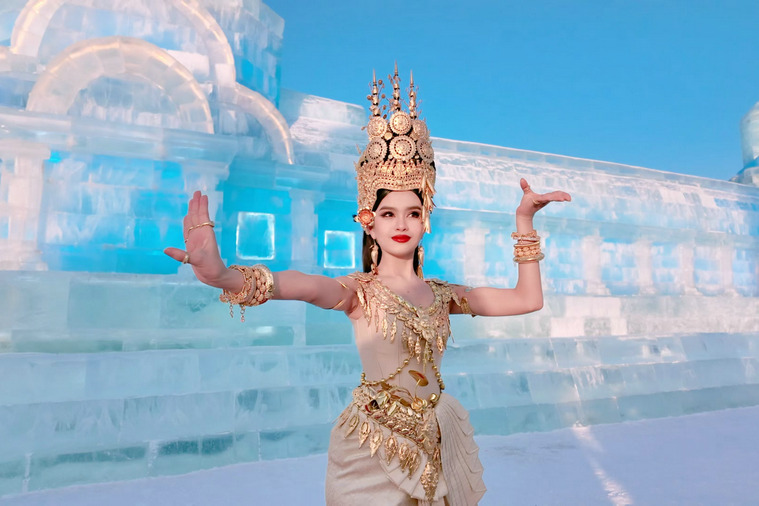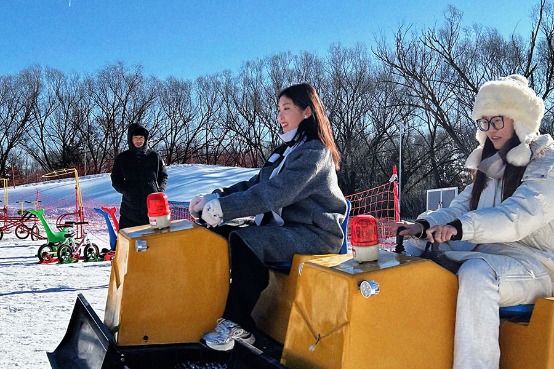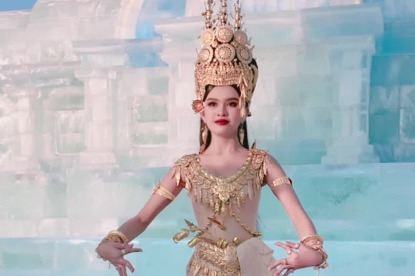Tourism's technological transformation
Digitalization and corresponding innovations are enticing reimaginings of travel that are increasingly translating into reality, Yang Feiyue reports.


Then a robotic arm to the left of the screen mixes a beverage or cocktail tailored to their respective emotional state. Additionally, a seven-course banquet was developed, with each dish customized according to the emotions of each diner.
"We've integrated art, dining and mixed-reality experiences to create an immersive culinary journey that not only provides a contextualized dining experience but also serves as a multisensory and artistic therapeutic encounter," Fei says.
In December, Fei and his team established an "emotional theater "at the National Centre for the Performing Arts in Beijing.
"The audience uses the interactive devices we provide to experience performances featuring music and visuals generated specifically according to their emotions," Fei says.
Fei believes these projects may offer practical approaches for exploring the collaborative relationship between human and machine creators.
"We can see that AI serves as a provider of materials used by human creators. In this role, AI is more like a sous chef preparing ingredients, while human creators act as the head chefs, using the materials provided by the sous chefs for the creative process," Fei says.
Xiang Yong, Peking University's Institute for Cultural Industries head, says all parties need to continually unleash cultural development's vitality through institutional innovation and showcase the character of the human-oriented economy.
This involves promoting the digital transformation of cultural production, empowering cultural creativity for rural vitalization and urban renewal, achieving cross-disciplinary innovation and industrial integration in cultural creativity, and making cultural inheritance and development a strategic focus for value creation.

































